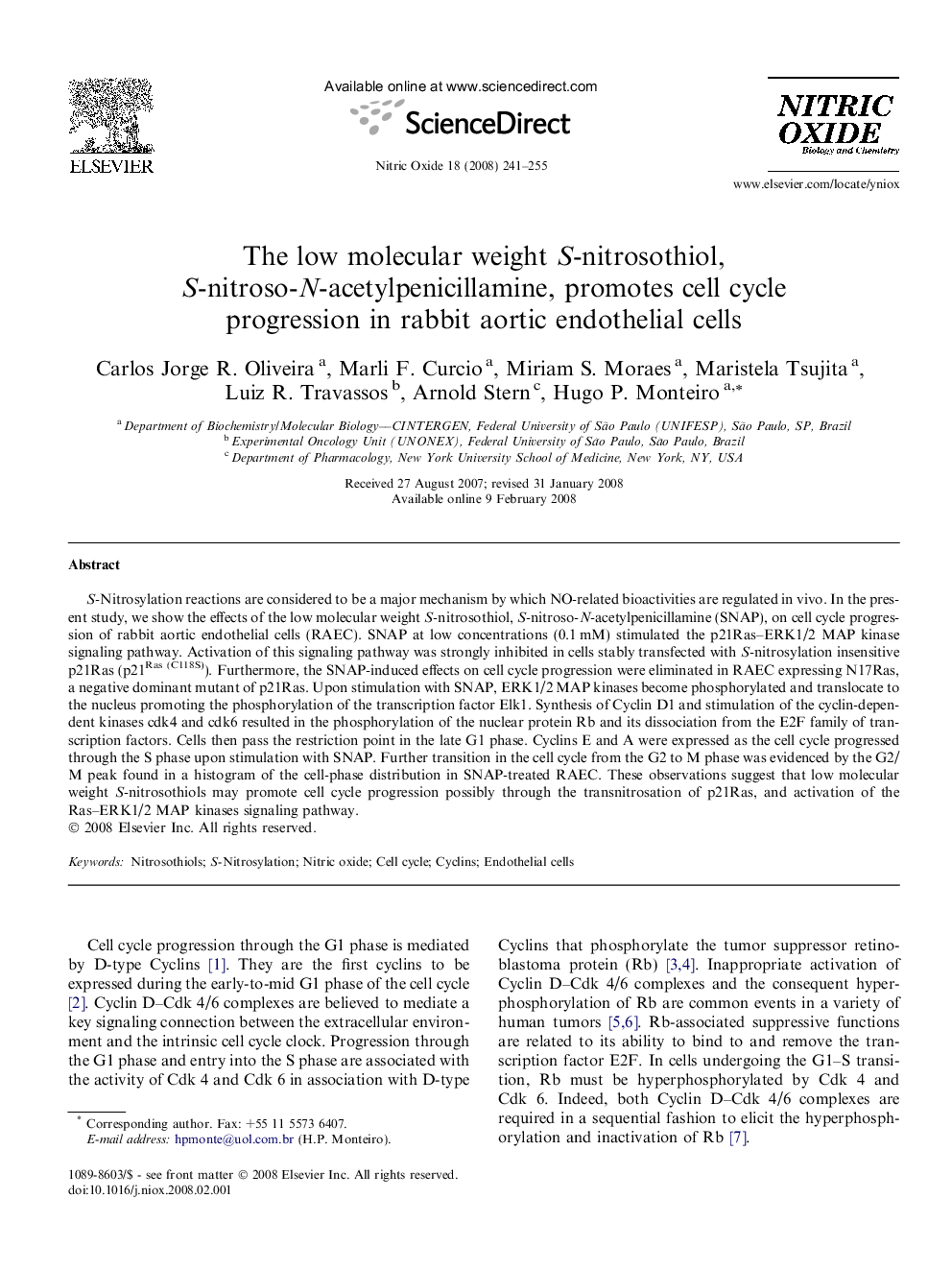| Article ID | Journal | Published Year | Pages | File Type |
|---|---|---|---|---|
| 2001750 | Nitric Oxide | 2008 | 15 Pages |
Abstract
S-Nitrosylation reactions are considered to be a major mechanism by which NO-related bioactivities are regulated in vivo. In the present study, we show the effects of the low molecular weight S-nitrosothiol, S-nitroso-N-acetylpenicillamine (SNAP), on cell cycle progression of rabbit aortic endothelial cells (RAEC). SNAP at low concentrations (0.1Â mM) stimulated the p21Ras-ERK1/2 MAP kinase signaling pathway. Activation of this signaling pathway was strongly inhibited in cells stably transfected with S-nitrosylation insensitive p21Ras (p21Ras (C118S)). Furthermore, the SNAP-induced effects on cell cycle progression were eliminated in RAEC expressing N17Ras, a negative dominant mutant of p21Ras. Upon stimulation with SNAP, ERK1/2 MAP kinases become phosphorylated and translocate to the nucleus promoting the phosphorylation of the transcription factor Elk1. Synthesis of Cyclin D1 and stimulation of the cyclin-dependent kinases cdk4 and cdk6 resulted in the phosphorylation of the nuclear protein Rb and its dissociation from the E2F family of transcription factors. Cells then pass the restriction point in the late G1 phase. Cyclins E and A were expressed as the cell cycle progressed through the S phase upon stimulation with SNAP. Further transition in the cell cycle from the G2 to M phase was evidenced by the G2/M peak found in a histogram of the cell-phase distribution in SNAP-treated RAEC. These observations suggest that low molecular weight S-nitrosothiols may promote cell cycle progression possibly through the transnitrosation of p21Ras, and activation of the Ras-ERK1/2 MAP kinases signaling pathway.
Related Topics
Life Sciences
Biochemistry, Genetics and Molecular Biology
Biochemistry
Authors
Carlos Jorge R. Oliveira, Marli F. Curcio, Miriam S. Moraes, Maristela Tsujita, Luiz R. Travassos, Arnold Stern, Hugo P. Monteiro,
